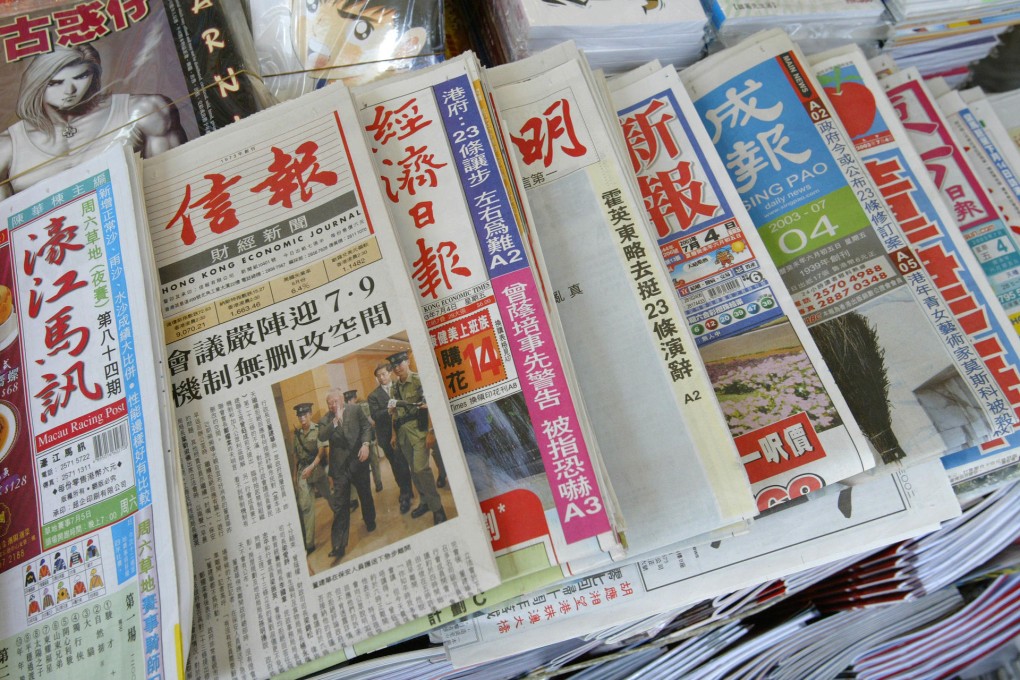Squeeze put on Hong Kong press freedom
Beijing is openly interfering in city's media, says international organisation, and reporters have been subject to malicious persecution

News coverage of the Occupy movement and allegations of corruption against Chief Executive Leung Chun-ying and media tycoon Jimmy Lai Chee-ying exposed different degrees of self-censorship among media, says a spokeswoman for the International Federation of Journalists.
At the same time, the central government has been "more frequently and openly" interfering with press freedom in Hong Kong, according to the federation's seventh annual China Press Freedom Report released yesterday.
"There were very worrying signs that the interference with press freedom was more frequent and obvious last year, compared to the past," said Serenade Woo, the federation's Asia-Pacific representative.
"The news reports concerning the Occupy movement have provided particularly obvious evidence that the mainland has extended its control of the media to Hong Kong. This trend is expected to continue with political reform remaining the focus in the coming year."
During the 79-day Occupy protest, 39 reporters complained of being harassed, attacked, detained or maliciously accused by police and anti-Occupy protesters, the report said.
Some reporters received hundreds of harassing phone calls, and a few said they received calls from interviewees giving instructions on how to write up events.